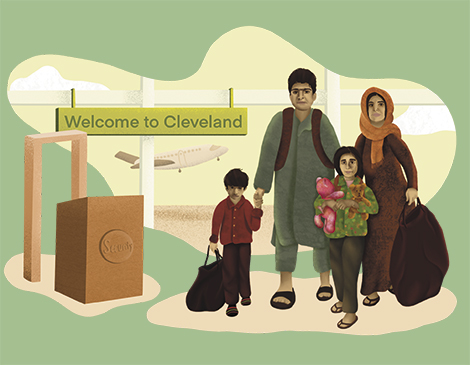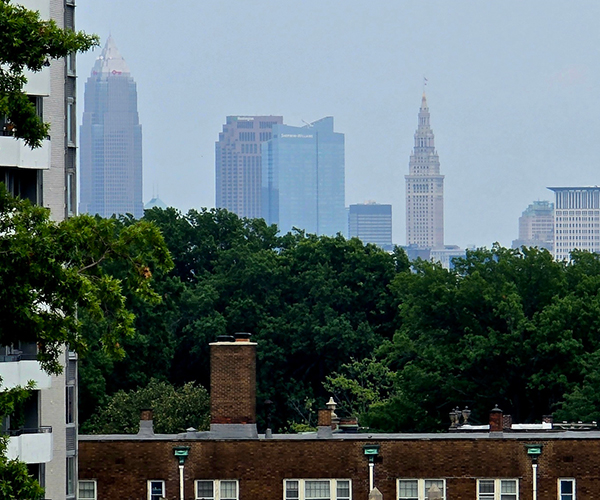We all saw the images in August. Afghans clinging to the wheels or fuselages of United States military airplanes at the Kabul airport, desperate to leave their native land as the Taliban rolled in.
While anyone living in Afghanistan might be eager to evade an oppressive regime about to take power, many of the those fleeing had helped the U.S. military at some point in the last 20 years — and feared almost-certain retribution.
“These are folks who were translators or engineers, they were in professional jobs in Afghanistan working with the [U.S.] embassy or armed forces,” says Patrick Kearns, executive director of Refugee Response, a Cleveland nonprofit that aims to empower resettled families and support them in becoming engaged and self-sufficient members of their new communities.
Going into 2021, the organization was expecting to resettle about 1,200 refugees from throughout the world, including 100 to 200 from Afghanistan. Then the Taliban took control and that number jumped to upwards of 300.
“Things changed quickly,” Kearns says.
Once refugees land in Cleveland and are resettled by federal agencies, Refugee Response steps in to help with programs to assist with education, cultural fluency and employment. Refugee Response also helps refugees navigate programs such as SNAP benefits, Medicare and Medicaid.
That work benefits the refugees, sure, but Kearns says Cleveland reaps rewards as well. His organization has conducted two economic impact studies — most recently in 2016 — that show the positive impact refugees have on the region. According to the 2016 study, there’s an $8 return on investment for every $1 spent on refugee resettlement in the Greater Cleveland area.
“The economics make sense,” Kearns says. “In a city that continually loses population and needs workers — well, here you go.”
As for fears that refugees were rushed out of Afghanistan without being thoroughly vetted, Kearns says some of the Afghans resettling here were part of the federal government’s Special Immigrant Visa Program, which is only for people from Iraq and Afghanistan who supported the U.S. government in those countries, while others are humanitarian paroles.
“These people will have done more to serve and protect the U.S. military than a lot of us have done,” he says.




